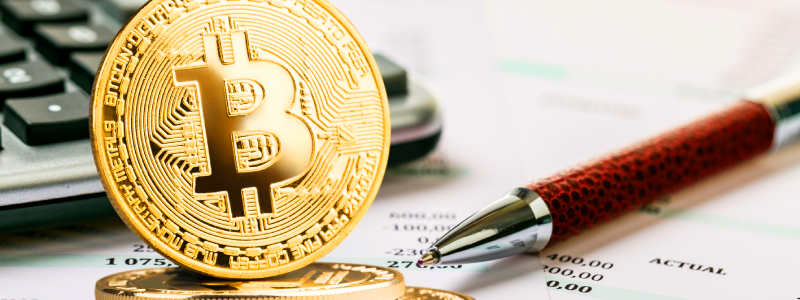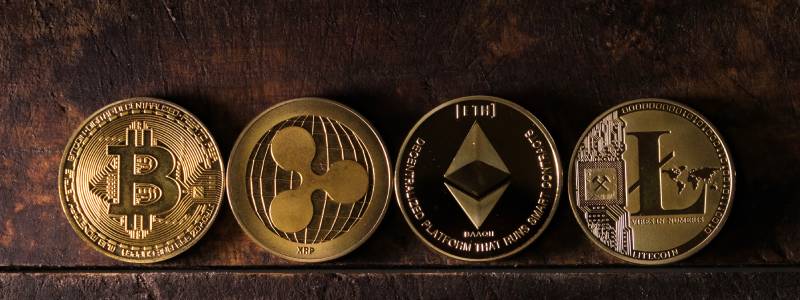Choosing the right Australian cryptocurrency exchange can get complicated — here’s what you need to know about Australian crypto exchanges in 2021
The regulation of cryptocurrency and crypto exchanges has changed significantly from the earliest days of the blockchain revolution. The very first cryptocurrency exchange, BitcoinMarket.com, launched in 2009 paved the way for the major cryptocurrency exchanges used around the world today.
Cryptocurrency trading platforms and exchanges in Australia have evolved from a generally unregulated ecosystem that could be accessed with minimal identity information into a tightly regulated marketplace overseen by AUSTRAC and other regulatory bodies.
Australia is now home to multiple cryptocurrency exchanges that provide high levels of security and service, with all now demanding Know Your Customer (KYC) and Anti-Money Laundering (AML) information from users.
The increased regulation and oversight applied to the cryptocurrency exchanges available to Australian traders and investors has dramatically increased exchange reliability and security. Australian traders now have access to exchanges that offer a wide variety of different advantages, with each exchange now offering different fee structures, deposit or withdrawal methods, or supported cryptocurrencies.
Australian crypto traders are able to access both local and international exchanges Choosing the right Australian cryptocurrency exchange for your needs can get complicated — here’s what you need to know about the best crypto exchanges in Australia in 2021.
What to Consider When Choosing a Crypto Exchange
There are a number of important factors that should be taken into consideration when choosing a crypto exchange in Australia. These factors include the identity documentation required to create an account, trading limits, fee structures, and currency support.
- When assessing Australian crypto exchanges, investors and traders should compare:
- Compliance: Crypto exchanges that operate in Australia must adhere to complex rules set out by AUSTRAC and other regulatory bodies. It’s important to trade only on exchanges that comply with Australian law.
- ID Documentation: Australian traders are able to access both Australian exchanges and international exchanges. When creating an account, it’s likely that an exchange will demand identity and proof of address documentation.
- Fiat Currency: Some cryptocurrency exchanges don’t accept fiat deposits or provide fiat currency withdrawals, which can streamline the identity verification process. While crypto-only exchanges can simplify crypto trading, it’s important to ensure the exchange you trade on supports AUD if you plan on withdrawing or depositing fiat currency.
- Trade Restrictions and Limits: Many exchanges place limits on the amount of cryptocurrency or AUD that can be traded in a day based on trading volume.
- Supported Cryptocurrencies: If you’re planning on trading or investing in smaller market cap cryptocurrencies, it’s important to ensure that the exchange you use supports the crypto assets you want. Many Australian exchanges, for example, don’t list privacy coins that completely anonymize users.
- Security History: Cryptocurrency exchanges are high-profile targets for hackers and attackers. Reliable exchanges should demonstrate a strong track record of security. Some exchanges, such as Binance, maintain insurance funds that are used to reimburse users in the event of a hack. It’s best to use exchanges that provide additional security layers such as two-factor authentication.
What are the Best Australian Crypto Exchanges?
The following cryptocurrency exchanges offer the best fee structures, security, features, and trading pairs for Australian traders:
1. Swyftx
Launched in 2019, Swyftx is a relatively new addition to the lineup of cryptocurrency exchanges based in Australia. The Swyft platform has rapidly captured a significant user base, however, due to the ease of use the exchange offers.
Swyftx is designed to reduce the amount of frustration experienced by Australian traders on other crypto exchanges, minimizing high spreads, market manipulation, and deceptive fee structures. Importantly, Swyftx is registered with AUSTRAC, and has gained over 30,000 Australian users in just over a year from launch.
The Swyftx platform offers the widest range of supported cryptocurrencies in Australia and provides a number of additional features not found with other exchanges, such as demo accounts that can be used to test the platform before investing capital.
- ID requirements: Swyftx boasts one of the fastest verification processes of any Australian exchange, offering near-instant verification to Australian residents. Users must verify email address, phone number, and government-issued ID.
- Trade limits: Completing the identity verification process for Swyftx allows traders to access up to $20,000 in daily limits
- Trading fees: Swyftx provides Australian traders with some of the lowest fees available in the market, with fees averaging at 0.6 percent per trade, with no fees for deposits or withdrawals over $200
- Fiat currency support: Swyftx supports AUD deposits and withdrawals.
- Deposit & withdrawal methods: Swyftx allows users to deposit or withdraw in various Australian banking methods that include OSKO, POLi, and PayID.
- Supported cryptocurrencies: Swyftx offers the widest range of supported cryptocurrencies of any Australian exchange, listing over 100 different tokens that include BTC, ETH, XRP, EOS, XLM, NEO, and XTZ.
2. Coinbase
Coinbase is one of the most popular crypto exchanges in the world and is ideal for new Australian traders seeking a simple platform for buying or selling cryptocurrency. Coinbase was founded in 2014 in San Francisco but is fully compliant and regulated in Australia.
Coinbase offers a basic crypto brokerage interface, which allows users to purchase, sell, or swap crypto, alongside a dedicated Coinbase Pro interface designed for professional traders that require robust trading tools. Both platforms can be accessed via the Coinbase website or dedicated smartphone app.
Coinbase is one of the most secure crypto exchanges online and has never experienced a hack or security breach. Notably, Coinbase actively protects new cryptocurrency users by preventing them from sending any crypto to known scam addresses.
- ID requirements: Australian traders will need to provide government-issued ID in order to verify their identity with Coinbase.
- Trade limits: Coinbase doesn’t place strict trade limits on Australian traders, but limits withdrawals to $25,000 per day.
- Trading fees: Coinbase is one of the easiest crypto exchanges to use, but it’s not the cheapest — Coinbase fees are based on a maker/taker model with taker fees that range between 0.05 and 0.25 percent.
- Fiat currency support: Coinbase supports a wide range of fiat currencies, including AUD, USD, EUR, and GBP.
- Deposit & withdrawal methods: Deposits and withdrawals can be made via bank transfer, while credit or debit card purchases require card verification. All credit or debit card purchases are subject to a 3.99 percent fee.
- Supported cryptocurrencies: Coinbase is highly selective in listing crypto tokens, and currently lists over 39 different tokens that include ETH, BTC, DASH, LINK, and EOS.
3. Binance
Binance Australia is a dedicated Australian version of the highly popular Binance exchange and is fully compliant with Australian cryptocurrency law. Binance boasts one of the best exchange reputations online and supports an exhaustive list of supported cryptocurrencies.
While Binance is based in the United States, the Australian version of the exchange provides Australian traders with a variety of options that allow for instant withdrawal or deposits. Notably, it’s also possible to trade in a broad range of different fiat currencies through Binance, which isn’t possible through some Australian exchanges.
Binance is popular with professional traders due to the broad range of crypto assets it offers, alongside complex trading and investing tools that include margin trading, leveraged tokens, and cryptocurrency futures. Binance also offers decentralized finance services such as crypto loans, savings, and staking.
- ID requirements: Binance requires personal information, phone and email verification, and government-issued ID verification.
- Trade limits: Binance uses a progressive trading, deposit, and withdrawal limit based on the verification level of users and which markets users are trading in. Fiat currency purchases are typically limited to the equivalent of $5,000 USD. Withdrawal limitations begin at 2 Bitcoin or equivalent in AUD. Market order limits vary based on liquidity but can fall as low at $50,000 for low-liquidity markets.
- Trading fees: Binance trading fees range between 0 and 0.1 percent, with discounts available for BNB token holders. Deposit fees for fiat currency purchases begin at 1 percent.
- Fiat currency support: Binance supports AUD alongside an extensive list of foreign currencies.
- Deposit & withdrawal methods: Binance US supports deposits or withdrawals via POLi, PayID, debit card, credit card, Osko, and bank transfer.
- Supported cryptocurrencies: Binance offers one of the widest ranges of supported cryptocurrencies, with over 250 different crypto assets listed across multiple pairs.
4. CoinSpot
CoinSpot is an Australian cryptocurrency exchange that provides simple, streamlined functionality to new cryptocurrency investors and traders. Based in Melbourne, CoinSpot was founded in 2013 and is designed to provide Australian investors and traders with an accessible, reliable, and user-friendly way to buy and sell cryptocurrency in Australia.
CoinSpot provides users with a flexible multicoin wallet that allows users to manage various crypto assets and, importantly, provides customer support via email and phone. Unlike international exchanges, CoinSpot integrates directly with the Australian banking system and therefore provides users with the ability to deposit or withdraw nearly instantly.
CoinSpot is fully compliant with AML/CTF regulation and is a registered AUSTRAC cryptocurrency exchange, making it a highly secure option for Australian traders.
- ID requirements: CoinSpot required extensive identity documentation, including the full name, date of birth, phone number, residential address, government-issued ID card, and selfie photo in order to verify an account.
- Trade limits: CoinSpot doesn’t limit trades, but does limit withdrawals to $2,000 per 24 hours for POLi or direct bank transfer, and $10,000 for BPAY deposits.
- Trading fees: CoinSpot offers flat market order fees of 0.1 percent, with instant buy fees of 1 percent and OTC trade fees of 0.1 percent.
- Fiat currency support: CoinSpot fiat currency support is limited to AUD.
- Deposit & withdrawal methods: CoinSpot users can deposit and withdraw via POLi, PayID, Osko, BPAY, Blueshyft, and direct deposit.
- Supported cryptocurrencies: CoinSpot supports over 200 cryptocurrencies, including BTC, XRP, LTC, ETH, NEO, POWR, GAS, TRX, EOS, and XLM.
5. Independent Reserve
Independent Reserve, founded in Sydney in 2013, is a highly reliable long-running Australian cryptocurrency exchange that currently boasts the fastest verification time of any Australian exchange. In most cases, new Independent Reserve users are verified within an hour of creating an account.
The Independent Reserve platform currently provides exchange services to over 100,000 users across Australia and New Zealand and works directly with ADCA and AUSTRAC in order to ensure regulatory compliance.
While Independent Reserve doesn’t offer the deep liquidity reserves of international exchanges, it does provide a unique “hack insurance” feature that insures against the “theft or loss of any cryptocurrency that is held in an Independent Reserve trading account.”
- ID requirements: Independent Reserve requires government issued ID, address verification, and information on the purpose of a trading account and source of funds.
- Trade limits: Independent Reserve doesn’t limit trades but does direct high-volume traders towards a dedicated OTC desk.
- Trading fees: Independent Reserve fees are based on a 30 day trading volume structure, which begins at 0.5 percent for accounts with under $100,000 in trading volume.
- Fiat currency support: Independent Reserve supports AUD, NZD, and USD deposits.
- Deposit & withdrawal methods: Withdrawals and deposits with Independent Reserve can be made via EFT, POLi, PayID, Osko, SWIFT, or cryptocurrency.
- Supported cryptocurrencies: Independent Reserve offers a limited range of supported cryptocurrencies focused on high market cap crypto assets, such as BTC, BCH, ETH, LTC, XRP, and OMG.
Key Takeaways
Cryptocurrency exchanges in Australia now provide Australian cryptocurrency investors and traders with dedicated, Australia-based trading options. Using an Australian exchange allows traders to deposit or withdraw using Australia-specific transaction methods, minimizing withdrawal timeframes and mitigating risk.
When trading cryptocurrency in Australia, it’s important to remain aware of your tax obligations. Reporting is critical when exchanging cryptocurrency for fiat currency or crypto — if you’re not sure of your tax obligations, reach out to Fullstack today for professional guidance. You may find the following articles useful:
Tax Treatment of Cryptocurrency Exchanges in Australia
Cryptocurrency Accountant – Why You Need One
My Crypto Exchange Has Been Hacked! What is the Tax Outcome?
EOFY Crypto Tax Planning Checklist.
(Any affiliate links may be financially commissioned.)
Was this article helpful?
Related Posts
- Tax Treatment of Cryptocurrency Exchanges in Australia
Crypto currency exchanges are critical to the crypto market ecosystem — but how are they…
- Cryptocurrency and GST
If you're into cryptocurrency, this guide will help you know how the Goods & Services…
- Cryptocurrency Mining Taxes
If you're currently mining crypto, it's important to learn how cryptocurrency mining is taxed. This…
- Cryptocurrency Exchange: The Best of 2019
Not all crypto exchanges are built equally. In this article we track down the best…

















